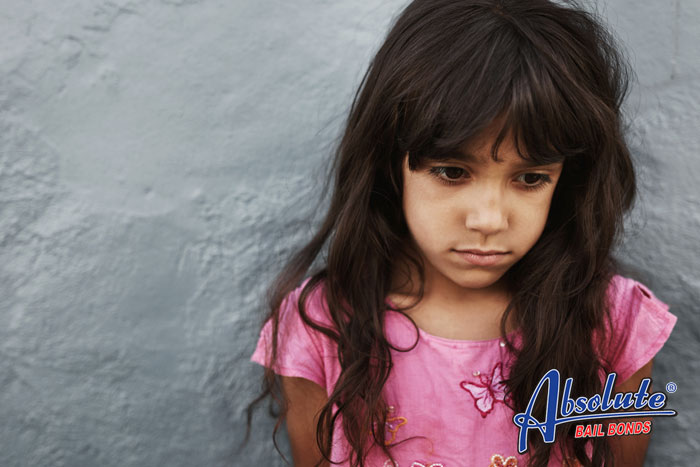
Child Endangerment in California
California’s lawmakers believe that adults have a moral and legal responsibility to protect children. Failing to do so can put you on the wrong side of the law.
The California Penal Code 273a PC deals with the issue of child endangerment.
The interesting thing about Penal Code 273a PC is that while it deals with child endangerment, it isn’t the same law that defines child abuse.
The idea behind child endangerment is that the episode is often a single episode. It doesn’t always involve a child getting hurt, but rather addresses the fact that a child, which according to the California legal system is anyone under the age of 18, could have been hurt or killed as a direct result of your actions. Getting behind the wheel and driving drunk while your passenger is a minor is a good example of a child endangerment case.
Additional examples of child endangerment include:
- Hiring the services of a babysitter who has an abusive past
- Exposing your child to a dangerous animal
- Failing to notice that your child is playing in the middle of a busy road
- Leaving a firearm laying around the house while a child is present
Many parents don’t realize that in extreme cases, failing to seek medical assistance for a child who is for an extremely sick or badly injured child can be considered child endangerment.
Just because you’ve been accused of child abuse and the case has gone to trial, it doesn’t mean you’ll be sent to jail.
In order to be convicted of child endangerment in California, the prosecutor has to effectively prove that you knew there was a chance that your actions (or lack of action) created a situation where the child was in danger.
Defenses that have been successfully used in child endangerment cases include:
- You couldn’t have known that the child was potentially in danger
- The child wasn’t your responsibility
- You were falsely accused (false accusations of child endangerment aren’t uncommon in cases that also involve a custody dispute)
- The endangerment was completely accidental
You’ll be surprised to learn that child endangerment is one of California’s wobbler laws. The details of the case determine if you’re charged/convicted of a misdemeanor or a felony.
If there was a chance that the situation could have resulted in death or extreme injuries to the child, you should expect the prosecutor to pursue felony child endangerment charges.
If you’re convicted, the potential consequences could include:
- A fine that doesn’t exceed $10,000
- Getting sentenced to anywhere from 2 to six years on a state prison
If it doesn’t appear that the child could have been severely injured or died as a result of your actions, the prosecutor will go after a misdemeanor charge.
If you’re convicted, you could:
- Be sentenced to up to one year in the county jail
- Be charged a fine that doesn’t exceed $1,000
The best way to avoid child endangerment charges in California is using common sense and avoid dangerous situations whenever possible.

False Allegations of Child Abuse in California
Child abuse laws are designed to protect children from being hurt. They’re good laws that make a lot of sense. Unfortunately, they are also laws that can be used against people, particularly parents who are engaged in a child custody dispute. It’s not unheard of for one parent to accuse the other parent of child abuse in order to obtain full custody of the children. It’s an accusation that can deal a lasting blow to both sides.
While there have been instances of men lodging false child abuse claims against women, it’s far more common for a woman to falsely accuse a man of child abuse. Data collected by the Stop Abusive and Violent Environments (SAVE) indicates that 85% of all child abuse protective orders are filed by men and issued against men. One lawyer estimates that approximately 90% of those that are filed during a divorce and that mention child abuse are a tactical move to gain custody of the children.
California’s family court judges are legally obligated to take all child abuse accusations seriously. The last thing anyone wants is for a child to be hurt because the court failed to act. As soon as one parent accuses the other of child abuse, the court will take action, usually siding with the parent who made the accusation. If you are the one accused of abusing children, you shouldn’t assume that you’re promptly out of luck. You do have to be willing to take a defensive stance.
It’s in your best interest to demand that the court investigate the accusations. Be prepared for this to involve an in-depth and invasive investigation into your background. Court-appointed experts will interview several people which can include:
- Your children
- Family
- Friendly
- Doctors
- Teachers
The process is time-consuming and often frustrating. When you feel impatient, remind yourself that you’re doing this for the good of your child.
The topic of false child abuse accusations in California is addressed in Family Code section 3027. According to the code, once it’s proven that the allegations filed against you were knowingly false, you have the right to seek monetary compensation for your court fees and additional costs that were connected to proving your innocence. The result of the investigation could lead to a significant change in which parent is granted custody of the children.

